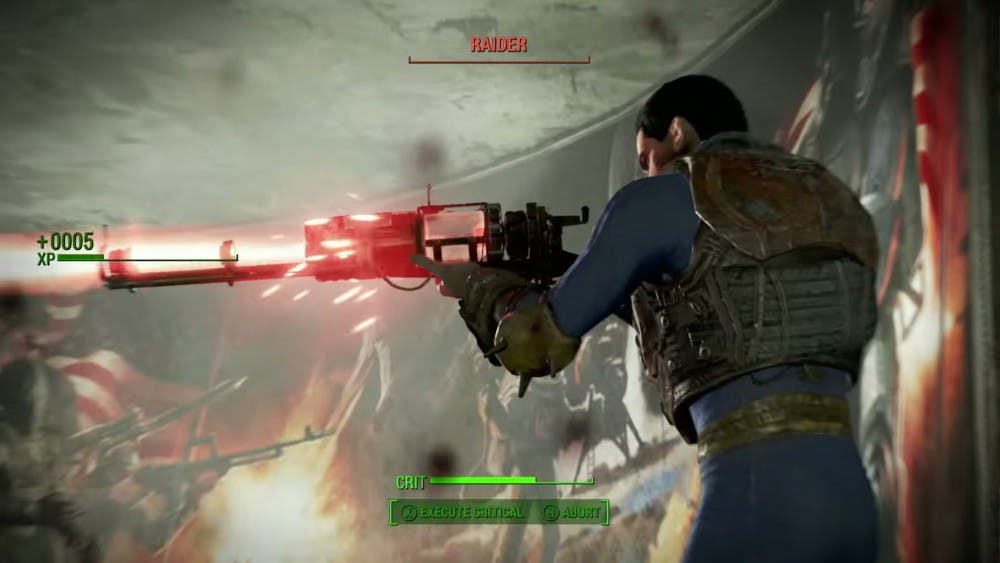Grade: B
2010 saw the last full release of a “Fallout” game, and with Bethesda Game Studios having gone dark for the last four years ever since the release of “The Elder Scrolls V: Skyrim.” Since then, gamers and the public have been eagerly anticipating the next entry in the “Fallout” series. That day has finally arrived, and the results have been satisfactory on the whole, though mixed at best.
“Fallout 4” is definitely a solid attempt at an open world RPG. Four years of meticulous effort have made it practically a success, but the elephant in the room is technical flaws that struggle to adapt to the new generation of consoles. Load times are everywhere and framerate drops are endemic on all platforms.
There is easily a lot of content here — well more than a hundred hours in sidequests, exploration and main quests. Unquestionably, you will get your $60 worth of content out of “Fallout.” However, certain elements are definitely obtuse and nearly incomprehensible to the uninitiated. I'm all for letting people learn on their own, but there is too much emphasis on looking up things on Reddit or Nukapedia.
Unfortunately, “Fallout 4” still seems like a holdover from previous entries in the series. Though assets are not reused, the structure of the game seems far too familiar for a studio’s last attempt at this IP seven years ago. Apart from ideas that have shown up in fan mods, such as a weather system and settlement building, the result is a game that is simply has a shiny coat of paint on top of a creaky engine.
What is most frustrating, though, is Bethesda’s writing which has not improved at all. In a year which gave us “The Witcher III,” a game that has the same scope of “Fallout” but with much more interesting characters and a world full of political intrigue, it is still near laughable when the game attempts an emotional punch at the start of the adventure and cannot pull it off.
Several elements, such as the dialogue system and the level up system, have been simplified — which is both good and bad as it is easier to understand what affects what, at the expense of nuanced character builds. The dialogue system, moving to a “Mass Effect” style dialogue wheel, does not really provide a good idea of how a conversation will go, however, and is a disappointment compared to previous systems which said exactly what your player character would say.
The aforementioned settlement building is neat idea in principle and provides tangible game benefits in the form of a steady stream of currency. Annoyances such as a lack of an isometric view, a bare-bones tutorial or requirements to take several perks in order to get settlements working together through trading routes weigh down this otherwise engrossing addition to the game.
“Fallout 4” is good value for the money, but is let down by Bethesda’s seemingly enduring problems such as technical bugs, lazy writing and dated design.




